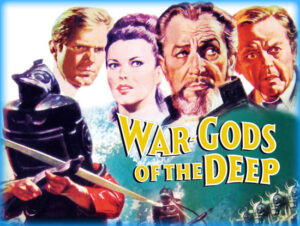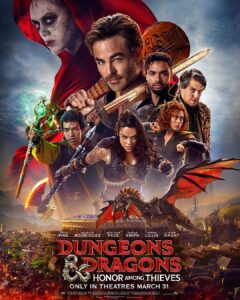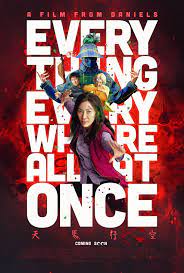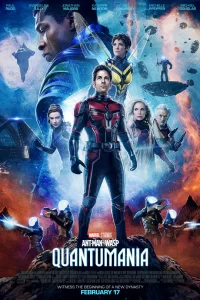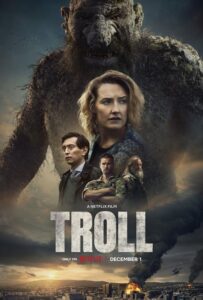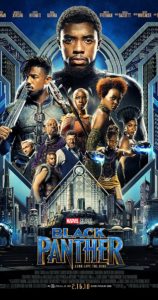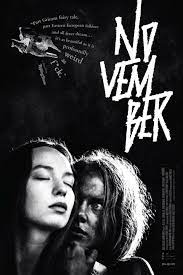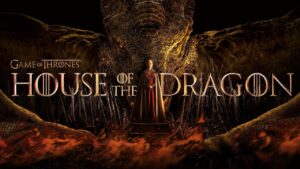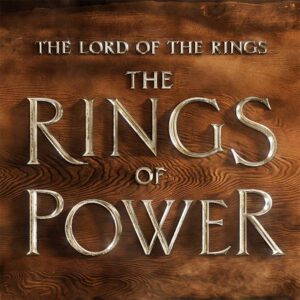.
1965 American International’s release War-Gods of the Deep (UK title City in the Sea)attempted to capitalize on the commercial and critical success of the Roger Corman Poe movies starring Vincent Price by hiring Price to star in this film very loosely inspired by a Poe poem.
Ben (Tab Hunter), an American working on the English coast, after discovering a corpse on the beach, becomes convince something is afoot, something unnatural. When the object of his
affections, Jill (Susan Hart) vanishes in the night, Ben and an eccentric artist, Harold, (David Tomlinson), along with the artist’s pet chicken (My sweetie-wife’s favorite part of the movie), go searching for the woman. By happenstance and the force of a plot-driven story they end up in an underwater city ruled over by a tyrannical smuggler, (Vincent Price.)
War-Gods of the Deep was the final movie directed by the legendary Jacques Tourneur who gave us lasting classics such as the original Cat People, Night of the Demon, and the wonderful noir, Out of the Past. Sadly, this movie can’t match the quality of any single shot of any of those previous films. The script is a hodgepodge of ideas, scenes, and wildly incongruent elements. This story has, mystical caverns keeping people ageless for more than a century, reincarnated wives, gill-men living in the deep, and pseudo-ancient cults and practices. None of the actors, save Price, seem to have done anything more than memorize their lines and marks, giving lifeless, empty performances.
The editing of the film is terrible with long tedious underwater sequences that are supposed to contain tension and action but are, in reality, utterly confusing leaving the viewer unable to determine one character from another.
It’s 85-minute running time drags slower than nearly any other film I have watched including some Italian zombie flicks. There is little to nothing in this production that is worth recommending unless you are a Price completionist.
War-gods of the Deep is currently streaming on Amazon Prime in the US.
